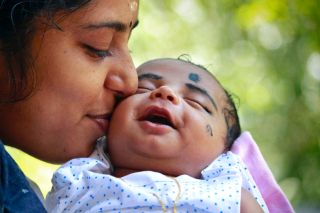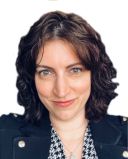Parenting
Paris Hilton Learns Mothers Are the Experts on Their Child
Her therapist speaks the truth: It's a parenting right and responsibility.
Posted December 9, 2023 Reviewed by Ray Parker
Key points
- Our culture trains parents to trust the advice of others instead of themselves.
- A key message from Paris Hilton's therapist is that mothers are the experts on their own children, not others.
- Like doctors, parents become experts on their children by observing their behavior and experience.

Today's parenting culture is remarkably good at undermining mothers' confidence in their abilities as parents. That's why this week's social media discussion of Paris Hilton's self-doubt as a new mother is so relatable. Like the rest of us, Paris needed to hear that she gets to be the expert on her own child.
As a multi-millionaire, there is a lot about Paris Hilton's life with her new baby that feels very different from what most moms experience, including the ample household staff and nanny she has to help her. In a scene on her reality TV show, Paris in Love, Paris shares that she was "scared" to change her one-month-old son's diaper since she had not done it herself yet. Her nanny proceeds to show her what to do, even instructing Paris on how to talk to her son during the diaper change, as Paris appears uncertain. (The transcript of the show was adapted from Buzzfeed News.)
While some of us might think, "must be nice to have a staff," what comes next for Paris echoes the same themes all mothers face. Our culture tells parents that they are not enough, that they don't know what they are doing, and that they should trust the advice from others instead of themselves when it comes to their children. These messages affect everyone, no matter how privileged.
On the show, at a visit with her therapist, Paris shares the way she defers to her nanny's judgment even when she disagrees. For example, Paris notices that her baby, Phoenix, appears too hot but says, "The baby's nanny, she always loves being hot. I always say, 'Isn't he hot?' and she's like, 'No.'"
And in words every mother needs to hear, Paris's therapist responds, "OK, so this is where you should trust yourself in terms of what you think is good for the baby. You are the mother; she's not."
Paris responds like so many mothers who have been convinced they are not enough do, with some version of why she can't take ownership, saying, "I know, but she's done this millions of times."
"You've given up authority to the baby nanny. I'm sorry, but that's wrong," the therapist confronts her. Paris is legitimately confused. "It is?" she asks.
Her therapist explains,
Because you're the expert, not her. It doesn't matter how many babies she's raised; that's your baby. You're the expert on your child. I think the question is, Do you want the nanny to be the primary attachment figure? Or do you want to be the primary attachment?
She goes on: "I think you should ask yourself that."
Next, Paris shares her own version of the common motherhood fear of not being enough when she says she worries that she isn't "responsible" enough to care for Phoenix. Her therapist replies, "OK, what you're telling me makes no sense. If you were so irresponsible, you wouldn't have a multibillion-dollar empire. It makes no sense."
Paris' discussion with her therapist was shared on TikTok and received a supportive response from many commenters, who agreed with @LibraGold21 when she wrote, "I think all mommies need to hear that you're the expert on your baby.'"
What Is an Expert Really Like?
This story validates new mothers, but it also brings up another sometimes sticky question: What does it mean for a parent to be an expert on their child? The same perfectionistic parenting culture that tells parents they can never be or do enough for their child also demands they become the expert on their child—implying that they are all-knowing and make no mistakes. But in the professional world, which is where the concept comes from, an expert is something very different.
Take experts from my own world of medicine. The good ones are very far from "all-knowing." In fact, the best medical experts are characterized by intellectual humility and curiosity and say things like "I could be wrong; let's keep following this" or "We don't know everything." What they do that makes them experts is spend far more time with a subject or a type of patient than other doctors do, learning everything they can from every reliable source and sometimes running research experiments.
Then, when they have a problem to solve or a diagnosis to make with a patient, rather than expecting themselves to just know what to do, they rely on a combination of observation, outside information, and their own prior experience, and knowledge. Next, they try something that makes sense based on that process and follow up with their patient to see if and how it works. Over time, they add knowledge by learning what works and what doesn't.
This is what it means for a parent to be an expert on their child: They become a close observer, informing their decision-making with their own experience and observations, as well as outside parenting advice when it seems reliable and relevant. Then, they try things and learn from what works and what doesn't.
But new parents start out in the middle of a confusing world of noisy parenting advice and criticism that tells them to focus on getting it right rather than on the path of curiosity that experts take. That's why I developed the Sigh, See, Start method, which helps parents tune out the noise and tune on their kids. By practicing this simple technique, parents find the behaviors of experts have become second nature, and their confidence reaches a new level.




